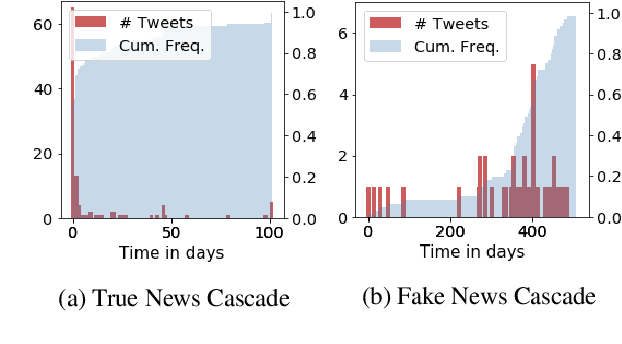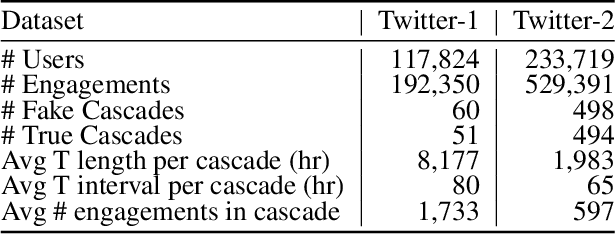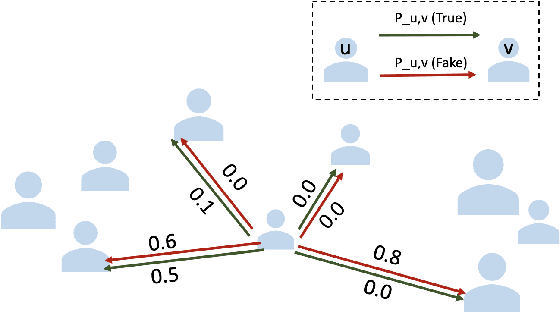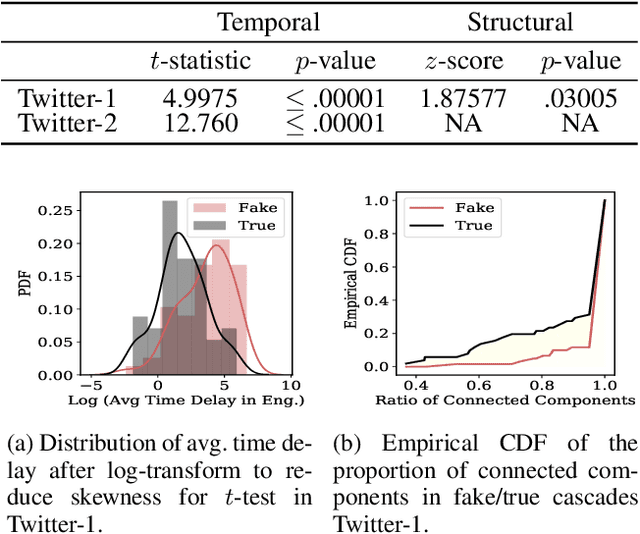Network Inference from a Mixture of Diffusion Models for Fake News Mitigation
Paper and Code
Aug 08, 2020



The dissemination of fake news intended to deceive people, influence public opinion and manipulate social outcomes, has become a pressing problem on social media. Moreover, information sharing on social media facilitates diffusion of viral information cascades. In this work, we focus on understanding and leveraging diffusion dynamics of false and legitimate contents in order to facilitate network interventions for fake news mitigation. We analyze real-world Twitter datasets comprising fake and true news cascades, to understand differences in diffusion dynamics and user behaviours with regards to fake and true contents. Based on the analysis, we model the diffusion as a mixture of Independent Cascade models (MIC) with parameters $\theta_T, \theta_F$ over the social network graph; and derive unsupervised inference techniques for parameter estimation of the diffusion mixture model from observed, unlabeled cascades. Users influential in the propagation of true and fake contents are identified using the inferred diffusion dynamics. Characteristics of the identified influential users reveal positive correlation between influential users identified for fake news and their relative appearance in fake news cascades. Identified influential users tend to be related to topics of more viral information cascades than less viral ones; and identified fake news influential users have relatively fewer counts of direct followers, compared to the true news influential users. Intervention analysis on nodes and edges demonstrates capacity of the inferred diffusion dynamics in supporting network interventions for mitigation.
 Add to Chrome
Add to Chrome Add to Firefox
Add to Firefox Add to Edge
Add to Edge